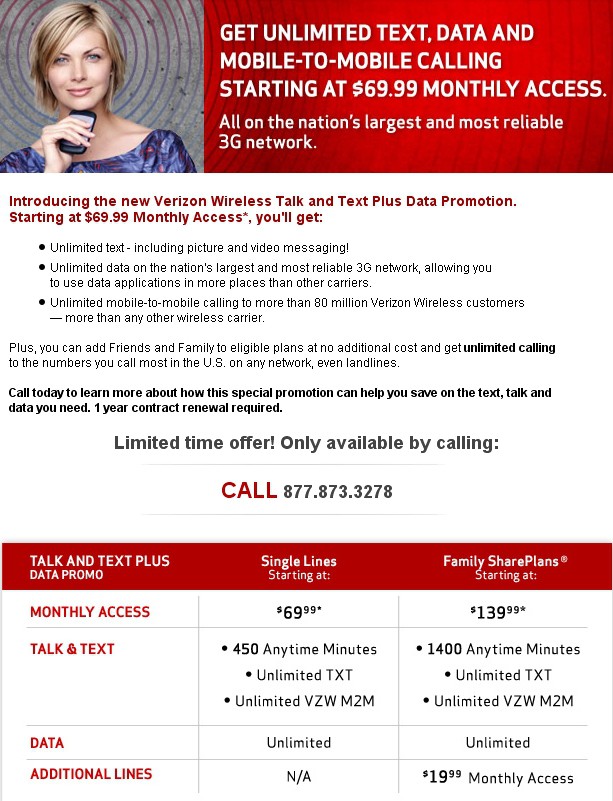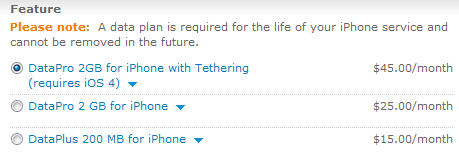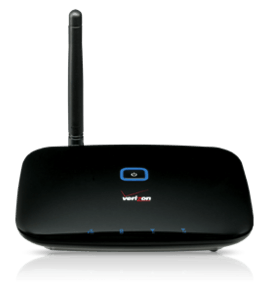 Verizon Wireless is willing to be aggressive to keep your business — if you are a good customer that pays your bill on time.
Verizon Wireless is willing to be aggressive to keep your business — if you are a good customer that pays your bill on time.
The company has been trying to deal with a growing number of its long-time customers who have gone “off-contract” and are still using phones they bought two, three, and even four years ago. The issue? Pricey data plans.
“A Verizon Wireless phone bill for a family of four can easily exceed $200 a month when smartphones come into play,” writes Stop the Cap! reader Jim in Honeoye Falls, N.Y. “Forget about $1.99 mystery data charge-inspired bill shock. Just getting your regular monthly bill can cause your hair to fall out.”
Jim says his recent visit to Verizon left him numb when he ran the numbers about adding his teen children to his existing Verizon account.
“My daughter is fed up with AT&T and she wants out at the end of her contract, and she’s willing to sacrifice her iPhone to manage it,” Jim says. “Her brother shares the account and he’s offered choice words about AT&T’s dropped calls to all in earshot.”
“But I was stunned by the Verizon in-store representative who started throwing numbers at me about texting, data fees, and insurance — not to mention plan changes,” Jim said. “I don’t remember cell phone service ever being this expensive.”
Jim is grandfathered into a plan sold by Verizon around five years ago, one that eats mobile web usage from the plan’s monthly minute allowance.
Those days are long gone. A Verizon representative told Stop the Cap! the company did away with that arrangement “for the benefit of customers.”
“Customers would sometimes forget and leave their phone running a data application overnight and consume most of their plan’s minutes for the month,” was the story told to us. “Customers would be angry and upset when they realized their minutes were gone.”
We countered it’s far worse to get a bill reflecting data use charged at $1.99 per megabyte, per instance — Verizon’s current policy for customers not on data plans. That has led to some unfortunate bill shock incidents where customers have ended up with bills in the tens of thousands of dollars.
Verizon “helped” its customers there as well — mandating expensive data plans for customers owning today’s higher-end phones. Verizon argues a $30 a month flat rate data plan is better than being socked with a huge bill at Verizon’s extraordinary pay-per-use price.
 “That’s like telling a mugging victim to be thankful they weren’t also raped,” Jim retorts.
“That’s like telling a mugging victim to be thankful they weren’t also raped,” Jim retorts.
What burns Jim about all of this is that unlimited data service plans do not include unlimited texting.
“It’s offensive that Verizon asks you to pay $30 a month to push mobile data around, but that doesn’t include a single text message,” Jim writes. “If you forget to add a text plans, it’s 20 cents a message.”
Verizon offers a budget package of 250 text messages for $5 per month.
Jim’s journey is a familiar one we’ve heard repeatedly from Verizon Wireless customers who are interested in exploring today’s advanced feature phones, but are turned off by the corresponding fees levied by the wireless carrier — fees that can dramatically increase customer bills.
“We pay around $100 a month for two lines with Verizon when all of the taxes are added up,” Jim says. “To bring my kids on board, we’d have to upgrade away from our current cell phone plan to one with at least two mandatory data plans, which would add $60 a month to our bill just for that.”
Verizon’s back-of-the-envelope calculations suggest Jim’s new Verizon bill would easily exceed $200 a month based on their usage and plan features.
“That’s crazy,” Jim feels.
Those prices cause customers like Jim to head for the door, telling Verizon to leave their account the way it was when they walked in the door.
Verizon seems to be getting that, because the company is increasingly targeting upgrade offers to contract-renewal-resistant customers, especially with family members eager to jump into smartphones.
The most welcome news — rumors the company may explore offering a FamilyShare Data Plan that carries a usage allowance, but is charged per account, not per phone. For casual users and those more than happy to switch to Wi-Fi where available, that could represent serious savings.
Find incredible deals on a vast array of products at Shoppok, your ultimate online shopping destination. Browse through various categories, from electronics to apparel, and experience a smooth shopping journey at Shoppok.com.
In the meantime, two promotions that are available offer some help for customers looking to upgrade:
FamilyShare – Smartphones Talk Free a/k/a $10 off data plan
Marketed in two ways, this promotion targets multi-line customers with one or more members seeking a smartphone upgrade, but do not want to have a stroke when they open the bill.
The promotion works with existing Verizon Nationwide Family SharePlans starting at $69.99 monthly access for 700 Anytime Minutes. Add a $29.99 data plan for each additional smartphone and get $9.99 off your bill for each smartphone, per month, for the next two years. Sometimes this is pitched as “$10 off our unlimited $29.99 data plan” — because it is the price of the data plan that usually scares would-be smartphone customers back to their old phones. Charging $20 instead of $30 is soothing enough to ease some customers on board the smartphone revolution.
“This is an ideal option for customers with a spouse or child wanting to move to a smartphone,” said Marni Walden, vice president and chief marketing officer for Verizon Wireless.
The caveats. Your new smartphone will probably come with a two year contract extension and the primary line on the account is not qualified for the discount. But there is an easy way around this. If one or more lines on your account are not going to upgrade, simply have Verizon reassign one of those lines to be the primary line. Legacy service plans no longer offered will have to be abandoned, and there is no way back to them. This promotion expires January 7, 2011.
Talk (450 Minutes) With Unlimited Text and Data for $69.99 per month
Price conscious consumers have started giving carriers like Sprint a second look. Rated the most improved carrier by Consumer Reports, Sprint’s aggressive pricing has begun to attract some Verizon customers. In response, Verizon has been testing a new promotional plan that makes data and texting unlimited for one flat price. The plan was initially open only to those who received an invitation in e-mail, but a quick call to Verizon Wireless customer service finds at least one call center that can add this plan for anyone — no invite required.
The plan’s price for single line accounts is $69.99 per month and a one year contract renewal is required for those with less than one year remaining on existing contracts (or those off-contract altogether.) If you still have more than a year remaining on your contract, no further extension is required.
A companion FamilyShare plan delivers 1,400 minutes per month. The monthly $139.99 price delivers service for two lines. Each additional line is $19.99 per month, which includes unlimited texting and data. For heavy users with several smartphones on an account, this plan can represent significant savings, and does not expire.
Caveats: Getting either plan might take a few calls to customer service. Not every call center can add this promotion for customers. Voice minutes might be too limited for some customers, but Verizon also offers the Friends & Family option, allowing unlimited calling to a select group of numbers.
This holiday season, selecting your new phone is probably going to be the cheapest part of your relationship with Verizon over the next two years. The carrier is literally giving away several smartphones, offering buy one, get one deals on others.

Promotions like these from Verizon should not be the final word on pricing. Compare offers from online phone retailers and then call customer service and negotiate prices down.
Consumer advocates acquainted with the wireless market traditionally suggest the biggest savings come from online merchants like Wirefly, Dell Mobile, or Amazon.
At first glance, that advice seems sound.
Jim’s daughter and son both want the Droid X which sells for $199.99 on Verizon’s website. Verizon offers a Buy One, Get One special on the Droid X currently so the effective cost for two phones is $199.99.
But hang on a moment. Dell Mobile (powered by Wirefly’s parent company) has the same phones for much less — $19.99 each, based on how the phones would be added to Jim’s account. Until last evening, Dell even threw in a $25 gift card to sweeten the deal. Excluding that, the difference in price between Verizon and Dell was a whopping $160 for the exact same phone.
Trying to narrow the difference used to be an exercise in futility for many Verizon customers. With a market leadership position, Verizon doesn’t have to viciously compete on price. As a result, hard fought negotiations often yielded little more than an accessory like a car charger thrown in to sweeten the deal.
But those days are starting to change, especially when Verizon considers you an excellent customer prepared to change carriers.
Lesson one for Jim was to avoid Verizon stores if he wanted the best possible deal. As he discovered, Verizon store employees are recalcitrant about giving away the store as they try and protect their commissions and sales numbers. Besides, many of the employees Jim dealt with seemed to know less about Verizon’s plans than he did.
Jim decided he could handle Verizon’s Smartphones Talk Free promotion, but he wasn’t about to leave $160 on Verizon’s table for the phones. He visited a Verizon store in nearby Rochester to see what could be done about the price of the phones.
“Basically nothing was the answer,” Jim says.
“These guys will say anything to make a sale,” says Jim. “But when you try and negotiate with them, they have little authority and less to offer.”
He reports a sales representative finally offered him free cell phone cases and a spare charger (a $100 value according to the Verizon rep — a value Jim disputes) instead of a price discount.
“I walked out,” said Jim.
While inquiring about how to place his order with Amazon, the online retailer instructed him to call Verizon directly to reconfigure something on his account before placing the order.
That was a fatal mistake… for Amazon.
“I was very surprised that the Verizon Wireless representative immediately started to fight for my business in ways the in-store reps never did,” Jim reports.
When Jim made it clear he was not about to give Verizon $160 more than he had to, the Verizon Wireless representative reviewed his account and placed Jim on hold. Moments later, Jim learned Verizon would match Amazon’s offer.
“That was actually a relief for me because those third party online retailers have their own contracts you have to sign yourself committing to no account changes for six months, and you are never really sure whether they’ll configure the account properly,” Jim said.
Jim also scored free overnight FedEx shipping in time for Christmas and the representative promised to call him back after the phones arrived to finish setting up the account.
The only downside is that Verizon is still sticking Jim with mail-in rebates that will be fulfilled with debit cards. His charges for the new phones will get added to his regular Verizon bill, however. No credit card required.
Verizon’s willingness to extend offers can depend on your business relationship with the company. Making late payments or arriving credit challenged can dramatically reduce how far Verizon will extend its hand.
Our advice to others in Jim’s position:
- Call Verizon customer service and deal with them, not store employees when trying to negotiate the best deal. A good phone rep will deliver discounts in-store salespeople know nothing about and won’t be willing to offer even if they did;
- Make it about the price. If you have a competing offer, share it with them. Verizon can easily adjust prices downwards with their New Every Two $50 credit and do better with additional credits such as a free month of service to effectively knock your price down;
- If they offer accessories, hold out for actual billing credits. Buy your own accessories later;
- Be prepared to hang up and call back if you get a difficult representative. Some call centers are better than others;
- Consider the competition. Customers on individual plans might find far better deals with prepaid carriers like Page Plus that use Verizon’s network. Or it may be time to consider a different carrier.


 Subscribe
Subscribe











